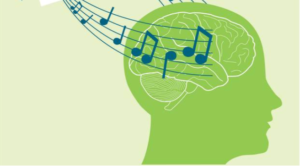RESEARCH
“Our collaborative research investigates the neurology of emotional and social function in healthy older adults and those affected by Alzheimer’s disease. We work within the Harvard Aging Brain Study and other large observational studies to define emotional, behavioral and pathological changes that occur at the earliest stages of Alzheimer’s disease, prior to the onset of cognitive impairment. These changes include traditional neuropsychiatric symptoms such as anxiety and depression as well as subtle changes in social function. By recognizing these early symptoms in older adults, we seek to enhance the detection of Alzheimer’s disease and advance treatment options to preserve cognitive and mental health in late-life.”
During the Covid-19 pandemic, the geriatric psychiatry department initiated new pilot studies to investigate interventions to address loneliness in community dwelling older adults. You can find information on our Music Therapy study, Intergenerational Friendly Telephone Visits, Care Accessibility in Low English Proficiency Seniors below.
 A Study of Virtual (Zoom) Music Therapy for Older Adults Living Alone:
A Study of Virtual (Zoom) Music Therapy for Older Adults Living Alone:
Music therapy has been shown to improve physical and mental health and quality of life for older adults. This may be an important tool during the coronavirus pandemic when many people feel disconnected from others. This pilot study will enroll 8 older adults who live alone and will evaluate the impact of music therapy on feelings of social connection, stress and other aspects of mental health.
 A Study of Friendly Telephone Visits with Older Adults:
A Study of Friendly Telephone Visits with Older Adults:
Friendly phone visits between older adults and younger generations have become very popular, but little is known about what may make these worthwhile or helpful for those involved. This is especially relevant during the coronavirus pandemic when many people experience feelings of disconnection from others. To investigate this, we are evaluating the experience of 10 older adults who are matched up with 10 undergraduate students for friendly phone visits. We are specifically interested in those who live alone and experience feelings of loneliness throughout the pandemic.
A Study of Care Accessibility in Low English Proficiency Older Adults:
The COVID-19 pandemic transformed healthcare delivery as telemedicine has become a primary modality of care. In this study, we are investigating preferences and barriers to video telemedicine access in geriatric patients who have limited English proficiency, preferring to speak with their physicians in Spanish. Our findings will contribute to a growing effort to provide culturally sensitive care during and beyond the pandemic.
“Our mission is two-fold: to assess promising new treatments for Alzheimer’s disease through clinical trials and to improve early diagnosis of Alzheimer’s disease by employing more sensitive clinical evaluations, biological markers, and neuroimaging techniques.”

“Through the Harvard Aging Brain Study (HABS), we are continuing our quest to both identify which markers, and likely the combination these markers, that will more accurately predict the emergence of clinical symptoms and the rate of subsequent decline at the individual level. The overall goal of HABS is to elucidate the earliest changes in molecular, functional and structural imaging markers that signal the transition from normal cognition to progressive cognitive decline along the trajectory of preclinical Alzheimer’s Disease.”

BWH GERIATRIC PSYCHIATRY
CLINICAL INNOVATION & RESEARCH

